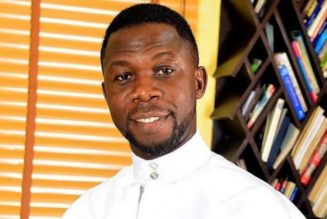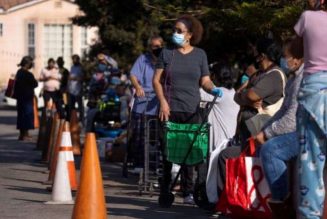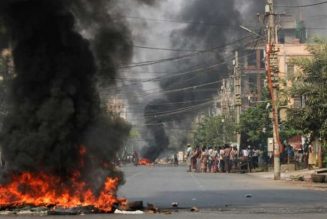THE DANGERS OF OVER PROTECTIVE PARENTING
“It is easier to build strong children than to repair broken men” – Frederick Douglass
Rick Joyner said, “If our life is always easy, it’s because we are called to a lesser purpose”. So many times, I listen to parents boasting pompously that the reason why they struggle so hard to get to where they are today is simply because their children wouldn’t have to pass through what they themselves went through. Such parents quickly forget that the main reason why they are comfortable, rich and stable today is simply because of what they went through! I am not disputing the fact that there are some unnecessary ‘sufferings’ that must be avoided in life, but we must all come to realize that we are simply the outcome of the processes we have been through. Each one of us has challenges, problems and hindrances that are peculiar to our destination. Against popular thought pattern, obstacles are not meant to stop us; they are actually meant to make us stronger.
I have come to observe that over-parenting or excessive interference of parents in the experiences of their children is gradually turning them into an ‘endangered species’! The core responsibility of parents must be to prepare their children to function as independent adults in the society. We must stop short-circuiting their process of growth and churning up emotionally stunted children to the society. Parents should stop helping their children to ‘buy’ their way to the top. We must imbibe in them the culture of paying their own price to get to the top.
What many parents fail to realise is that the more we help our children avoid facing their own challenges, the more we make them unfit for the future. Children who are not supervised to solve problems on their own end up becoming liabilities in life. Parents must systematically design their “exit plan” from the lives of their children. We must face the blatant truth that we will not always be there for them. We must train them to think independently of us and to see opportunities in the midst of life’s challenges. Winston Churchill said, “Difficulties mastered are opportunity won”.
There is a particular illustration that I would like to use to drive home some salient points. The story and struggle of the emerging chick validates the fact that some experiences and struggles are needed to stabilize us for the future. It takes 21 days to hatch a chicken egg under the correct conditions. At a minimum of three times a day, the egg must be gently turned or ‘rotated’ to prevent the developing embryo from sticking to the inside of the egg using an instrument called incubator, but the mother hen does this same job in nature very well.
The mother hen provides the necessary temperature, feeds the feeble chicks and prevents them from predators. But for the chicks, every hatching process is meant to be a form of internal struggle to prepare them towards an uncertain future. The truth is that the length of our external life is determined by the depth of our internal struggle.
When the baby chick is ready to hatch, it is suicidal to assist! The first efforts to free itself are crucial to the chicken’s life cycle, and it will die if we interfere in this mysterious process responsible for developing survival instincts. The internal struggle is ‘divinely’ regulated in such a way that only the strongest chicks will survive it and even if we help the weak chicks to hatch, we are exposing them to a future that they’ve not been equipped to handle.
It has been experimentally validated that helping the chicks to hatch portends great danger to their future, and also, the chicks who went through the natural struggle to break the shell grew up to maturity and are fully equipped to surmount and adapt to environmental changes. Interfering with the process of hatching does far more damage than good – it has a disastrous effect on the future of the chick.
A great lesson to be learnt is that there are some things we go through in life that are needed for our preservation. Every stage of our life is needed to face a greater adversity in the future; without our internal struggle, we become endangered species. Internal struggle ensures external stability. It has been emphasized that the parent hen is responsible for providing an enabling environment to help the egg to hatch – through supplying warmth to the eggs, feeding the young chicks, and protecting them from predators – but the hatching of eggs is solely the responsibility of the ‘emerging’ chick.
There are some adversities that come to fortify us towards a more dangerous “unseen”. The best way to help children out of future misery is to allow them pass through present challenges. Helping children is good, but it must be timely and with godly wisdom. Great parents don’t do things for their children; they do things with their children. Sometimes we abuse our children when we do for them the things that they ought to have been prepared to do for themselves. Some parents go the extra mile to think for their children. When parents think for their children, they destroy the future ability of their wards to think independently of them.
Parents are meant to reason together with their children and not reason for them, even the Almighty God said in Isaiah 1:18, “Come now, and let us reason together.” The story taught us in a great way that we must not pamper or tamper with the process of our children’s evolution and development. For the chick, it is simply 21 days of struggle but a lifetime of bliss!
So many times we abuse our children when we do for them what they are capable of doing for themselves. We must nip the dependency dilemma in the bud and provide the processes that evolve functional adults. The chick story testifies to the fact that the struggle of today is a prerequisite for our survival tomorrow. Wills Damien said, “The purpose of every difficult time is to place a demand on our creativity.’’
We must allow our children to fully live and experience life. We must prepare them emotionally to live independently. Refusal to create a platform for their independency may cause them to cling to unsecure “anchors” that are detrimental to their future. Parents must nurture the capacity of their wards to reach emotional equilibrium in the face of unanticipated change, unexpected disappointment and other life’s adversities. This would develop their sense of responsibility and ability to manage risks. We need more critical thinkers not mechanized robots.
Parents must be mature enough to expose their children to life situations that will shape them for the future. A smooth sea never made a skilful sailor and every problem introduces a person to himself. Parents who tend to dominate their children’s choices eventually produce obedient but dependent children. We must encourage decision-making from an early age. We must subtly expose them to the risk of choices and consequences in life.
We must subtly teach them to learn to take a certain measure of hardship without turning to socializing agents for help or comfort. Our refusal to integrate this into their developmental process will indirectly teach them to seek attention from the wrong places – this is actually the origin of abusive relationships for most children. We must raise our children in a way that promotes self-confidence, adaptability, self-respect and optimism. In this way we reduce their vulnerability. Over protective parents raise over dependent adults!
We need to have strong faith in the processes of ‘evolution’ of our children. The world is not waiting for over- pampered children; the world is waiting for responsible adults.
QUOTE OF THE WEEK:
“Over protective parents raise over dependent adults”– Gbenga Adebambo












